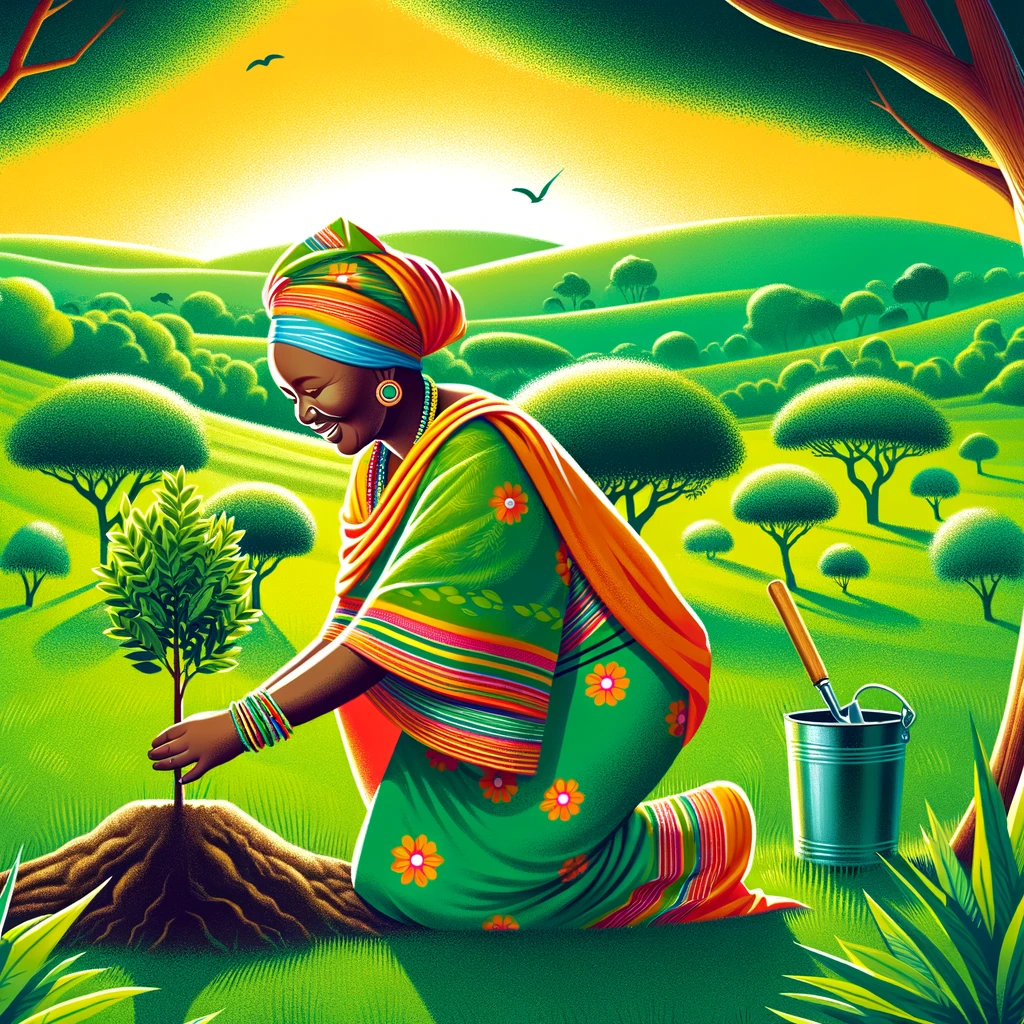Wangari Maathai was not just a conservationist; she was a visionary who saw the intrinsic link between environmental conservation and social justice. Born in Nyeri, Kenya, in 1940, Maathai became the first African woman to receive the Nobel Peace Prize in 2004, recognizing her efforts to promote sustainable development, democracy, and peace.
Early Life and Education: Planting the Seeds of Change
Raised in the rural highlands of Kenya, Maathai was fortunate to receive an education, a rarity for girls in her region at that time. Her academic prowess led her to the United States, where she earned a degree in biological sciences from Mount St. Scholastica College in Kansas. Her further studies took her to the University of Pittsburgh, where she was influenced by the environmental movement growing in the U.S.
The Green Belt Movement: Roots of Empowerment
In 1977, Maathai founded the Green Belt Movement, an environmental organization that focuses on tree planting, environmental conservation, and women’s rights. The movement’s main initiative was to combat deforestation and the resulting soil erosion across Africa. By empowering women to plant trees, Maathai connected environmental stewardship with economic empowerment and societal values, fostering a sustainable model of development.
Political and Social Activism: A Voice for the Voiceless
Maathai’s environmental advocacy was not limited to conservation. She became a staunch defender of human rights and women’s equality in Kenya and throughout Africa. Her activism often put her at odds with the political establishment. She faced arrests and violent attacks for her outspokenness, especially during the regime of President Daniel arap Moi.
Nobel Peace Prize and Global Recognition: A Triumph of the Human Spirit
The awarding of the Nobel Peace Prize to Wangari Maathai in 2004 was a landmark moment. It was the first time the prize had been awarded to an African woman, and it highlighted the global importance of linking environmentalism with social justice. Maathai’s recognition brought international attention to the struggles of grassroots environmental activists in Africa and around the world.
Legacy and Continued Influence: The Evergreen Impact
Wangari Maathai passed away in 2011, but her legacy endures through the Green Belt Movement and numerous environmental initiatives worldwide. Her work has inspired countless individuals to view environmental conservation as a platform for social change. Today, the Green Belt Movement continues to grow, spreading Maathai’s vision for a greener, more equitable world.

Wangari Maathai’s life and work demonstrate the profound impact one individual can have on the world. Her legacy is a testament to the power of grassroots activism and a reminder of the deep connections between the environment, peace, and human rights.
